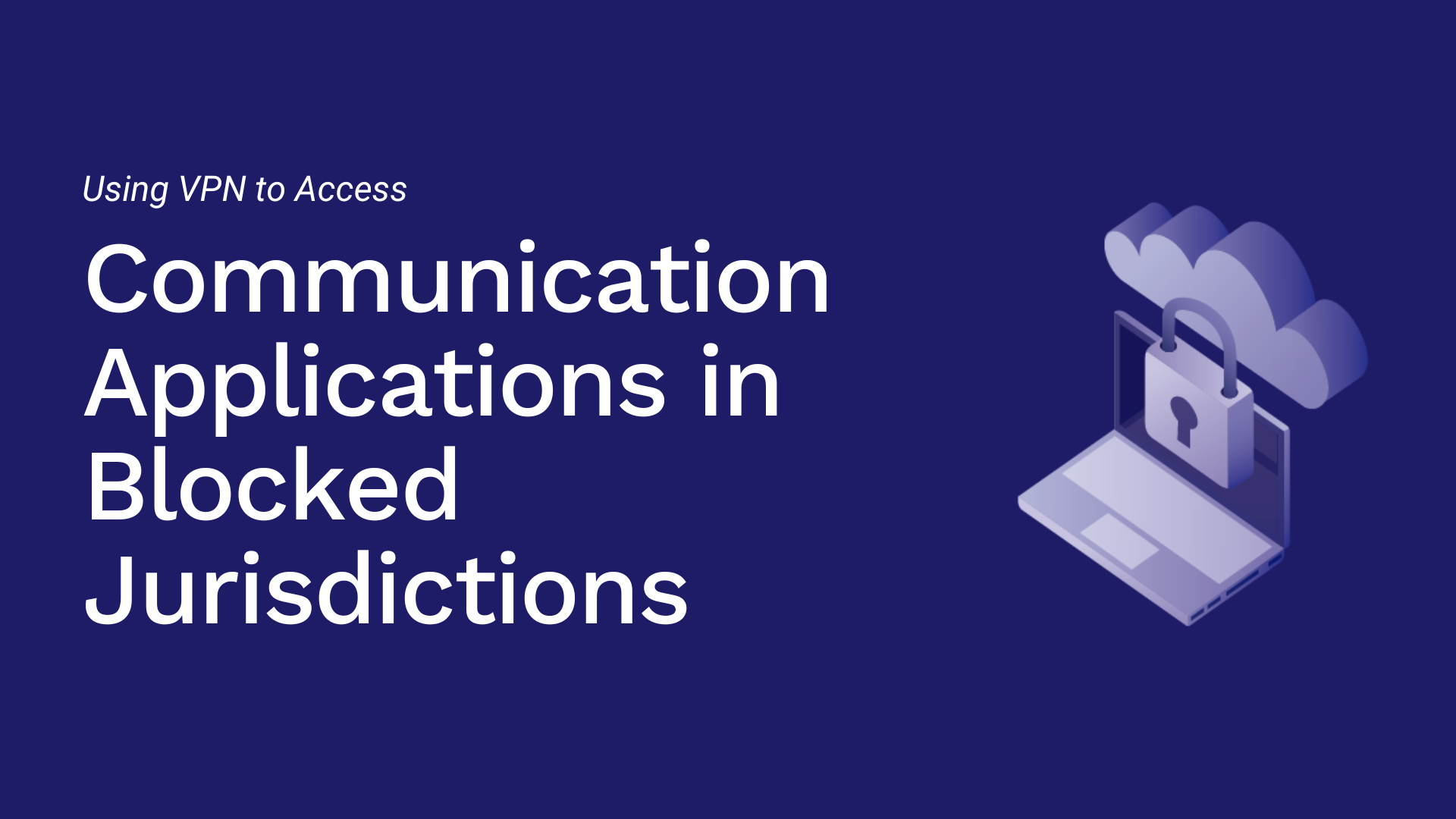
Using VPN to
Access Communication Applications in Blocked Jurisdictions
In many parts of the world, governments impose restrictions on communication platforms such as WhatsApp, Telegram, or Skype, often citing reasons like national security or the need to control misinformation. These restrictions can hinder free communication, isolate individuals, and limit access to essential tools for businesses and personal relationships.
A Virtual Private Network (VPN) offers a solution by bypassing these restrictions, enabling secure and uninterrupted access to blocked communication applications. This article explores how VPNs work in such scenarios, the benefits they provide, and best practices for using them effectively.
Why Are Communication Applications Blocked?
Communication platforms are often blocked for reasons such as:
- Political Control: To suppress dissent or prevent the spread of anti-government messages.
- Regulatory Reasons: Some governments require companies to comply with local data laws, including surveillance mandates. Non-compliance can result in bans.
- Economic Interests: Governments may block free apps to protect revenue from local telecom services offering paid messaging or call options.
- National Security Concerns: Authorities may restrict apps they perceive as facilitating illegal activities or terrorism.
Examples of Blocked Apps:
WhatsApp and Facebook Messenger: Frequently blocked during political unrest or in countries with tight communication controls (e.g., Iran, China).
Skype and Zoom: Banned in certain regions due to concerns over VoIP services bypassing local telecoms.
Telegram: Often targeted for its encrypted messaging capabilities (e.g., Russia, Iran).
How VPNs Help Access Communication Applications
A VPN enables users to bypass blocks by creating a secure, encrypted tunnel between their device and a server in another region where the app is accessible.
Here’s how it works:
1. Masking Location:
- When you connect to a VPN server in a different country, your internet traffic appears to originate from that location.
- This allows you to access the internet as if you were in a region where the app is not blocked.
2. Encrypting Traffic:
- VPNs encrypt your data, making it unreadable to local firewalls, internet service providers (ISPs), or government surveillance.
- This prevents authorities from identifying or blocking your attempts to access restricted apps.
3. Bypassing Firewalls:
- Advanced VPNs use obfuscation techniques to disguise VPN traffic, allowing users to evade deep packet inspection (DPI) used by governments to detect and block VPN connections.
Benefits of Using VPNs for Communication Apps
1. Unrestricted Access to Communication
VPNs ensure that users can connect with family, friends, and colleagues regardless of regional restrictions, preserving critical lines of communication.
2. Enhanced Privacy
By encrypting all internet traffic, VPNs protect your identity and activity from being monitored by ISPs, government agencies, or malicious actors.
3. Reliable Access During Emergencies
During political unrest or crises, communication platforms are often the first to be restricted. VPNs provide a lifeline for sharing vital information and staying connected.
4. Business Continuity
For professionals and companies operating in restricted regions, VPNs enable seamless access to essential communication tools like Slack, Microsoft Teams, or Zoom.
Real-World Applications
1. Activism and Journalism
Activists and journalists use VPNs to communicate securely in countries where their work may be suppressed. Apps like Signal and Telegram, combined with a VPN, enable secure messaging and file sharing.
2. Global Business
Businesses operating in restricted regions rely on VPNs to maintain access to tools like Microsoft Teams or Zoom for international collaboration.
3. Personal Connectivity
Individuals living abroad or traveling to restrictive countries can use VPNs to stay connected with family and friends through apps like WhatsApp and Facebook Messenger.
Conclusion
VPNs play a crucial role in bypassing restrictions on communication applications, empowering users to stay connected in even the most tightly controlled regions. Whether for personal, professional, or humanitarian purposes, VPNs ensure access to vital communication tools while protecting user privacy.

 Cart is empty
Cart is empty